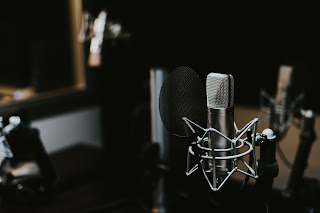Podcasting is a popular and powerful medium for sharing your ideas and experiences with the world. Whether you're a seasoned radio veteran or a complete newcomer to the medium, recording a podcast can be a fun and rewarding experience. In this guide, we'll go over the steps you need to take to get started with podcasting and get your voice out into the world.
Step 1: Choose Your Equipment
The first step in recording a podcast is to choose the right equipment. You'll need a computer, a microphone, and a way to connect your microphone to your computer. There are many options available, ranging from entry-level USB microphones to professional-grade XLR microphones and mixers. It's important to choose equipment that is right for your budget and your needs.
Step 2: Plan Your Content
Once you have your equipment set up, it's time to plan your content. Think about what you want to say and how you want to say it. You can write an outline, create a script, or simply make notes. The important thing is to have a plan for what you want to cover in each episode of your podcast.
Step 3: Record Your Episode
With your equipment and content planned, it's time to start recording your episode. Make sure you're in a quiet room, and start your recording software. Speak clearly and naturally, and keep your content on track by referring to your outline or script.
Step 4: Edit Your Episode
After you've recorded your episode, it's time to edit. This is where you'll remove any mistakes, trim out any dead air, and add any background music or sound effects. You can use free software like Audacity or Adobe Audition, or you can hire a professional editor to do the work for you.
Step 5: Publish and Promote Your Episode
With your episode recorded and edited, it's time to publish and promote it. You can use a hosting service like Libsyn or Blubrry to publish your podcast, and you can promote it on social media, your blog, or your website. You can also submit your podcast to directories like Apple Podcasts, Spotify, and Google Podcasts to reach a wider audience.
In conclusion, recording a podcast is a fun and rewarding experience. Whether you're sharing your ideas and experiences with the world, or just having a conversation with your friends, podcasting is a powerful and versatile medium. With this step-by-step guide, you'll be able to get started with podcasting in no time, and get your voice out into the world.
hope this step by step guide on How to Record a Podcast would help you to become a good podcaster to know more you can check my other post aswell.



.png)


